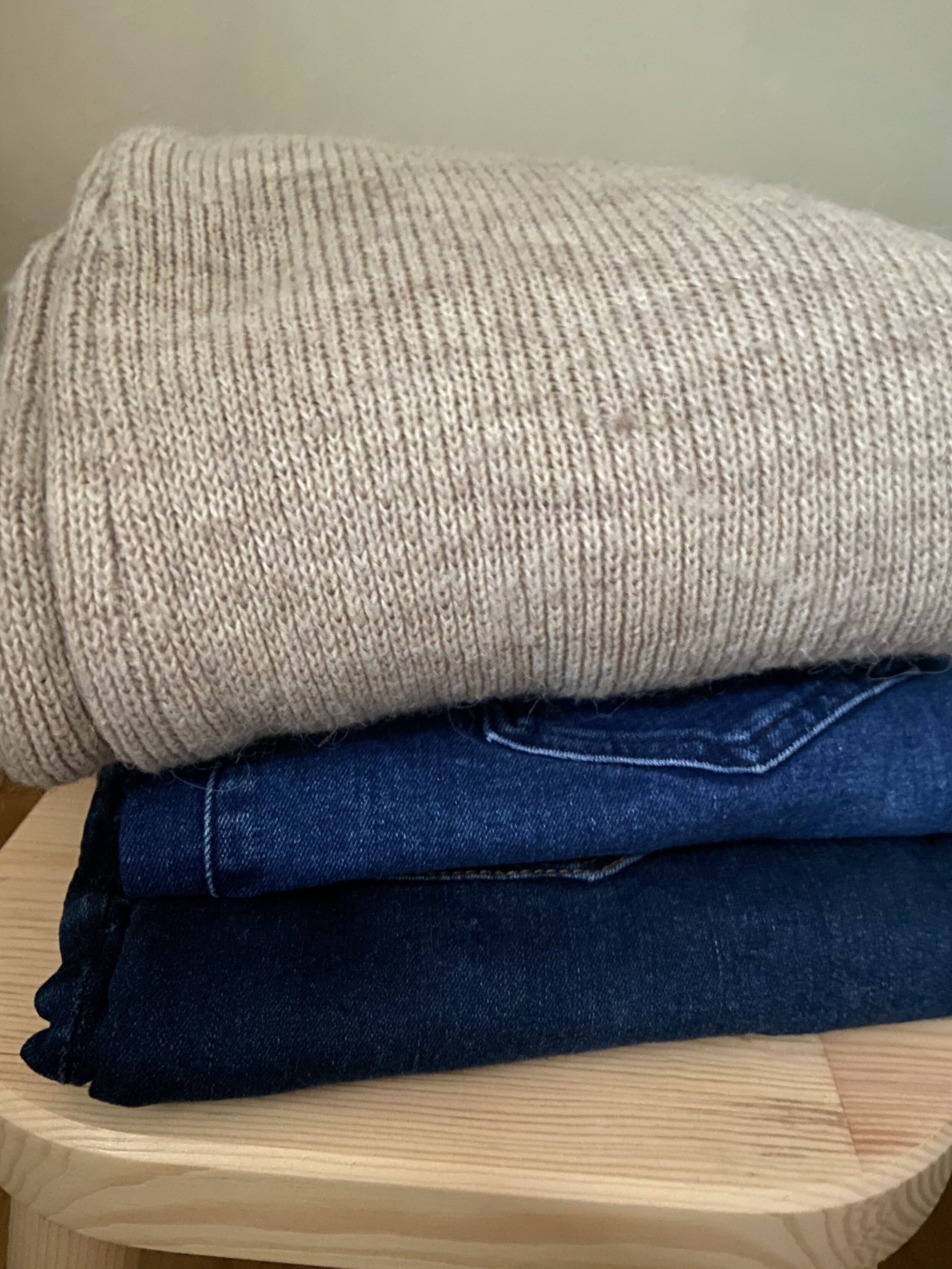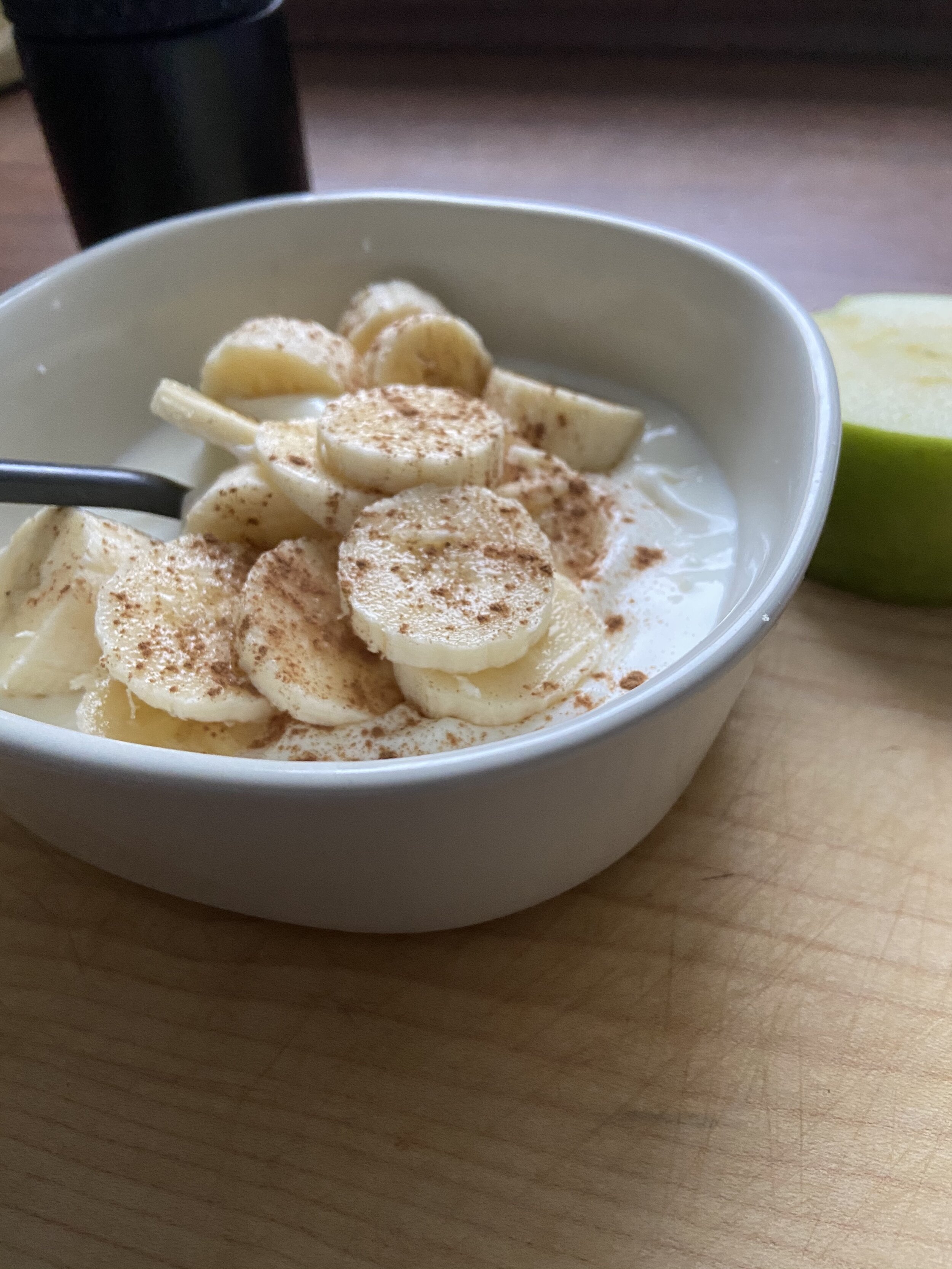9 approaches to surviving the 2021 winter lockdowns (and perhaps even thriving)
It's official: new year, new lockdown.
The German government announced on Tuesday that the current lockdown (with the addition of some new and stricter rules) will be extended until at least the end of January. This is not only restricted to Germany: with global numbers of COVID-19 infections on the rise, many countries are either reinforcing or continuing their current lockdown regimes.
Although I kind of saw this coming, it's still quite a blow (I actually cried the other night about the prospect of being stuck at home again looking after the kids and not being able to work). The spring lockdown, with a toddler and a newborn to manage, took a toll on my mental health. Now, it is dark, cold, and dreary. I wanted 2021 to provide a fresh start and to reinvigorate me, but news of this lockdown extension is making me feel like we are rapidly moving in the opposite direction to all that hard-won progress we were all celebrating over summer.
Instead of falling into a hole of despair, I started thinking about how I could protect my mental health this time round. I thought of all the little things that I could do each day (that I know make me feel good) to not only survive this time, but perhaps even thrive.
Here are my top 9 approaches for getting through winter lockdowns and quarantines:
1) Define your "must-haves" and front-load them
I think this is the most important tip I have. Determine what you must do in a day to feel a sense of satisfaction at the end of it. Everyone has these - things that you know make you feel good and help keep your sanity in the face of external uncertainty. They might be big or small.
Mine are:
Exercise
Reading
Writing
Time outside
If I do each of these 4 things in a day, and nothing else, I can feel like the day was a success.
I know that if I start letting these things drop off, I will feel bad. I will not feel like myself. I will not feel like I'm progressing. I'll be in waiting-for-the-future mode - waiting to continue my life and do all the good things when the lockdown is over, when the world returns to normal. If 2020 taught us nothing else, it taught us this: nothing is certain. Sure, you can (and should) work towards a future full of many amazing things, but the only things you can really control are the micro-decisions you make in each moment, each day.
Have kids? Then this is even more important (so that you can continue to feel like an individual person aside from your role as a parent). Get up before the kids, do things after they go to sleep, or while they're napping, or having quiet time, or mesmerised by a screen. Do whatever it takes to fulfil your must-haves (in some form) every. single. day.
2) Make your bed
This is extremely simple. Yet it is something that, until recently, I didn't do. Often, before work I would be racing around the house trying to get myself and my toddler fed, showered, and dressed. Most days I wouldn't even think about making the bed - after all, I wasn't going to be around to see the unmade bed anyway. But then I'd get ready to tuck into bed that night and it just wouldn't feel as nice and relaxing on the days I crept into an unmade bed. It was like there was some unfinished business from the night before.
Now, spending more time at home - this micro-habit (see here for a great read on the concept of “mini habits”) is even more important. Now, I go into the bedroom (and see the bed) numerous times a day. Seeing it undone makes me feel unmotivated and disheartened: how can I expect to achieve major goals if I can't do something as simple as make my bed?
As Navy Seal Admiral William H. McRaven said in his famous graduation speech for the University of Texas: "If you want to change the world, make your bed."
3) Tick off all the basics
In the same way as how making my bed has such a positive, momentum-building effect on my day, so do a whole bunch of other simple habits that I call "the basics". These are all ordinary things that I would always do if I were leaving the house to go to work, including:
Brushing my teeth
Showering
Getting dressed for the day (in real clothes)
But these are things that easily drop off the list of daily habits when I'm not going anywhere. "What's the point in getting dressed in my nice clothes when no one is going to see me? They'll get ruined if I wear them around the house." This attitude may have been acceptable during the spring lockdowns, but it is January 2021: we are almost a year into this whole pandemic, lockdown life. Plus, it is worth getting dressed anyway - even if it's only for you. I remember reading a scene in a book (I think it was in here: Bella Figura, but I can't find the exact passage) where an Italian man said that he always ate at a properly set up table (think cotton table cloth, elegant porcelain, a wine glass) even when he was eating alone. I think this concept could be applied to a lot of situations, especially to getting dressed for yourself. I know I feel much better when I'm wearing my "real" clothes compared to when I'm wearing my food-stained, tatty T-shirt. Of course, by "real" clothes, I don't mean that they have to be uncomfortable. Simply just clothes you would feel happy to walk out of the house in.
Also, don't forget to drink enough water and to eat food that makes you feel satisfied and energised. Another two "basics" that can be neglected when you're stuck at home with the lure of the chocolate box (or is that just me?).
4) Devise a daily schedule (and stick to it)
This is really going to be dependent on what you need to do in a day: What are your must-haves? What is your job? And how many hours do you have to devote to it? Do you have children that you need to look after? How old are they?
Currently (and for the entirety of the pandemic thus far) I have been on maternity leave, but I still do have some work responsibilities: I am writing and editing a research paper that I will be submitting for publication, I am working on some long-form writing projects, and I am also launching this blog. I also have two little kids (aged 3.5 and 10 months) that I'm looking after all day while my husband is at work (frustratingly, his employer has been doing everything they can to avoid encouraging work from home practises, but that's another story).
Our lockdown daily schedule looks something like this:
6am I wake up and do reading and writing.
7am Showers, kids wake up, breakfast, and everyone gets dressed, nursing the 10 month old.
8 - 8:30am My husband leaves for work. I briefly check email and connect with family in Australia.
9am I exercise while the kids play or the 3.5 yr old watches TV.
9:30 - 10:30am Kid-specific activity. This could come from my indoor activity list for kids (here). Or else, we rug up and go outside. 10 month old starts his nap sometime in there.
10:30 - 11:30am I work (science stuff or blog), or do any house admin that needs attention (filling out forms, taxes, ordering things etc) while the 3.5 yr old plays independently.
11:30am Lunch for the 3.5 yr old and me. Stories. Get 3.5 yr old ready for a nap (he's still currently napping most days, I think these days are numbered!)
12:30pm 3.5 yr old starts nap. I do more work.
1ish 10 month old wakes up and I give him lunch.
1:30 - whenever the 3.5 yr old wakes up More work for me while I keep an eye on the crawling 10 month old (definitely not a time for deep work!)
3pm The 3.5 yr old will normally be awake by now, so we have a snack.
3:30 - 4:30pm Another kid-specific activity (if I'm not too tired. If I am, the 3.5 yr old watches something). The 10 month old starts his second nap.
4:30 - 6pm "House" stuff (cleaning up, decluttering, odd jobs) and preparing dinner. My husband will come home during this time and he will often make the dinner. We normally tag team so that one of us is watching the kids while the other is doing the dinner.
6 - 8pm Dinner, nursing the 10month old, and getting both kids ready for bed (stories etc).
8pm onwards Adult relaxing time (TV, reading, etc).
9:30 - 10pm Bed for me. I have been blessed beyond measure by the fact that the 10 month old has been sleeping consistently through the night since he was about 5 months (the complete opposite to what the 3.5 yr old was like). So I am guaranteed a full night’s sleep: this definitely helps me feel more able to tackle the day! (Please see here if you want to read more about my approaches to baby sleep).
The point is, I think kids (and adults) crave structure. You need to work out what's best for you - this may involve trying out a few variations until you land on the best one. I think it's really comforting (for everyone) to know what's coming up in the day and not having to make decisions about what you should be doing in the moment.
5) Reset before moving on
There are these times in between two tasks or events that involve finishing up the previous thing and setting up the next task. These are perfect times for resetting, both physically and mentally so that nothing gets out of hand, and nothing builds up over the course of the day.
Mentally resetting: I stop the task at the time I've deemed it should end, and then spend maybe 1 minute tying up loose ends, and perhaps even making a note of what I'm going to do next time.
Physically resetting: this involves cleaning up the physical things to do with the activity - closing the computer and taking my coffee mug to the kitchen, cleaning up all the dishes after each meal, putting all the toys back into the basket after each play session. This aids in preventing a sense of overwhelm, as well as stemming the accumulation of mess. I think especially in this time when multiple people are often at home doing numerous activities, that it’s critical to keep things organised so that you don’t end up stepping on Legos while your toddler sits on your laptop!
6) Communicate with someone socially everyday
I know that early in the pandemic lots of people embraced Zoom social events and the like. But now, 10 months on, I'm just craving actual social interaction face-to-face. But that can't happen right now so I'm committing to connecting with friends and families using the means available for the foreseeable future. I'm going to try to at least send a direct message to someone each day, at the bare minimum.
7) Encourage activities before screens (for kids and adults)
My 3.5 yr old has definitely spent way more time in front of the TV during lockdown than during any other period of his life. It was sort of an inevitability, with the absence of childcare and me still having work responsibilities, so I'm not being too hard on myself (unfortunately, my unpaid work is not reason enough to be eligible for emergency childcare in Germany, but that’s another topic for another post).
During this winter, I want to try to encourage him to do an activity before I offer him the option of watching something. This is the main reason why I came up with my gigantic list of 61 indoor activities for kids that I alluded to earlier (again, see here): to remind myself of all the other options there are, when I'm feeling uninspired and reaching for the remote.
But I think this sentiment also holds true for adults. I often feel it is much more satisfying to curl up with a book (side note: see here for some recommendations) for a couple of hours than to binge watch a show on Netflix. Challenge yourself to have some screen-free downtime everyday.
8) Get cosy
It's winter. The other night in Munich it snowed a bucketload and we woke up to a winter wonderland. It's the perfect time of year to embrace everything cosy and amp up the hygge factor. Think: candles, steaming drinks, blankets, thick socks, a roaring fire (if you're lucky enough to have one), the smell of a delicious treat baking in the oven. I'm going to try to embrace and enjoy this winter season, bunkering down at home with all my favourite cosy things.
9) Simplify and let things go (for the moment)
This will end at some point. As I write this, thousands of people around the world are receiving some iteration of the COVID-19 vaccine. There will be a time when enough people will be vaccinated to confer herd immunity and life can return to some form of normal again (for good, hopefully). But that time is not now. I am frustrated by this, as I know many people are. 2020 was an exhausting year, and it is hard to feel like doing "all the good things" now. So, my final advice is to simplify. I think, remembering that this difficult time is finite, we can drop a few things that (although important in the long-run) just aren't a priority at the moment. I challenge you to identify one thing in your life that you could simplify or put on the back-burner for the moment, and then to go ahead and do that.
How are you planning to survive and thrive this winter lockdown season? Leave your thoughts in the comments below!
Note: If you're in Bavaria (Germany) - keep up to date with all the lockdown rule changes here (in English).
If you liked this article, you might want to read:
Want to receive my monthly ‘Inspiration Round-up’?
Where I share all my favourite sources of inspiration, knowledge, and motivation
(+ monthly reflection ideas + extra exclusive goodies)
Sign up now (you’ve got nothing to lose!)
Looking for something specific? Search here.







